Does My Cat Need a Special Diet During GS-441524 Treatment?
Nutritional Needs: GS-441524 Treatment vs. Normal Diet
You may be wondering whether your cat’s nutritional requirements change while they are undergoing GS-441524 treatment for Feline Infectious Peritonitis (FIP). Proper nutrition is a critical component of supporting your cat’s immune system and overall recovery during antiviral therapy. Cats receiving GS-441524 may experience side effects, such as decreased appetite or mild gastrointestinal upset, which can make it more challenging to maintain adequate caloric and nutrient intake. This comprehensive guide aims to provide a thorough overview of what cats need to eat while on this medication, highlighting nutrient-rich, palatable options that encourage consistent feeding. Additionally, it offers practical tips for supporting your cat's recovery through diet, including strategies to stimulate appetite, offer smaller and more frequent meals, and select foods that are easy to digest. By following these guidelines and working closely with your veterinarian, you can help ensure that your cat receives the essential nutrients needed to maintain strength, support healing, and maximize the effectiveness of GS-441524 treatment during this critical period.
 |
 |
 |
Nutritional Needs: GS-441524 Treatment vs. Normal Diet
While GS-441524 is a powerful tool in combating FIP, it's crucial to understand how it may impact your cat's nutritional needs.
Metabolic Changes During Treatment
Cats undergoing GS-441524 treatment for Feline Infectious Peritonitis (FIP) often experience significant shifts in their metabolism. Fighting the viral infection places additional energy demands on the body, and the antiviral medication itself can influence nutrient absorption and utilization. These metabolic changes may affect how carbohydrates, fats, and proteins are processed, potentially altering energy availability and nutrient balance. Owners may notice variations in appetite, digestion, or activity levels as the cat's metabolism adjusts to treatment. Monitoring these changes is essential for maintaining optimal nutrition, and working closely with a veterinarian can help ensure dietary adjustments meet the cat's evolving needs. Understanding these metabolic shifts allows pet owners to support their cat's recovery effectively, preventing malnutrition and ensuring the antiviral therapy is as effective as possible.
Increased Caloric Requirements
Many cats with FIP experience weight loss before beginning treatment, which makes it especially important to meet increased caloric demands during recovery. As GS-441524 therapy begins to control the infection and improve overall health, a cat's body requires additional energy to rebuild tissues, restore body weight, and support the immune system. Providing nutrient-dense meals, offering small and frequent portions, and selecting high-calorie, easily digestible foods can help meet these heightened energy needs. Regularly monitoring body weight and adjusting caloric intake accordingly is crucial to prevent further weight loss or ensure steady, healthy gains. Meeting these increased caloric requirements enhances recovery, strengthens the cat's immune response, and maximizes the benefits of antiviral therapy.
Protein Demands
Protein is essential for supporting immune function, tissue repair, and overall recovery in cats undergoing GS-441524 treatment. High-quality protein sources provide the amino acids necessary for maintaining muscle mass, repairing damaged tissues, and producing antibodies to combat the virus. Cats with FIP often experience muscle wasting and weakness, making adequate protein intake particularly important during treatment. Owners should focus on offering diets that are rich in digestible, high-quality proteins, such as poultry, fish, or specially formulated feline diets. Consulting a veterinarian or veterinary nutritionist can help tailor protein content to the individual cat's needs. Ensuring sufficient protein intake supports healing, helps prevent further weight and muscle loss, and contributes to a stronger immune response, improving overall outcomes during GS-441524 therapy.
 |
 |
4 Diet Tips for Cats Undergoing Antiviral Therapy
Optimizing your cat's diet during feline infectious peritonitis treatment can support their recovery and overall health.
1. Focus on Palatability
Cats undergoing treatment may experience changes in appetite. Offering highly palatable foods can encourage eating and ensure adequate nutrient intake.
2. Consider Smaller, Frequent Meals
Dividing daily food intake into smaller, more frequent meals can help cats maintain stable energy levels and may be easier on their digestive system.
3. Hydration is Key
Proper hydration supports kidney function and helps flush out toxins. Offer fresh water regularly and consider incorporating wet food into the diet.
4. Supplement Wisely
Consult with your veterinarian about potential supplements that may support your cat's immune system and overall health during treatment.
 |
 |
 |
Vet-Approved Meal Plans for Feline Antiviral Recovery
Working with your veterinarian to develop a tailored meal plan can significantly benefit your cat's recovery process.
Balanced Commercial Diets
High-quality commercial cat foods formulated for convalescence or recovery can provide a balanced nutritional profile.
Home-Prepared Meals
In some cases, veterinarians may recommend home-prepared meals to meet specific nutritional needs. These should always be formulated under professional guidance.
Therapeutic Diets
Specialized therapeutic diets may be prescribed to address specific health concerns associated with FIP or GS-441524 treatment.
 |
 |
Conclusion
While GS-441524 is a powerful tool in the fight against FIP, supporting your cat's nutritional needs during treatment is crucial for optimal recovery. By focusing on a balanced, nutrient-rich diet tailored to your cat's specific needs, you can help support their immune system and overall health throughout the treatment process.
FAQ
1. Q: Can I continue feeding my cat their regular food during GS-441524 treatment?
A: While some cats may do fine on their regular diet, it's best to consult with your veterinarian. They may recommend adjustments to support your cat's recovery and address any specific nutritional needs during treatment.
2. Q: How often should I feed my cat during FIP treatment?
A: Many cats benefit from smaller, more frequent meals during treatment. Your veterinarian can help you determine the optimal feeding schedule based on your cat's individual needs and response to therapy.
3. Q: Are there any foods I should avoid giving my cat during GS-441524 treatment?
A: Generally, it's best to avoid introducing new foods or treats during treatment without consulting your vet. Some ingredients may interact with the medication or cause digestive upset. Stick to vet-approved foods and always ask before making dietary changes.
Call to Action
When it comes to feline infectious peritonitis treatment, we at BLOOM TECH know how important it is to use high-quality ingredients to maintain your cat's health. Produced in accordance with the most stringent quality control protocols, our pharmaceutical-grade GS-441524 powder guarantees unparalleled purity and effectiveness. We provide a dependable supply chain for compounding pharmacies and veterinary pharmaceutical manufacturers thanks to our GMP-certified manufacturing facilities and substantial background in organic synthesis. Our quality GS-441524 powder might aid in the healing of your feline patients. For more information or to place an order, contact our professional team at Sales@bloomtechz.com. Together, we can make a difference in feline health.
References
1. Johnson, A. et al. (2022). Nutritional Management of Cats Undergoing Antiviral Therapy for Feline Infectious Peritonitis. Journal of Feline Medicine and Surgery, 24(5), 423-431.
2. Martinez-Gutierrez, M. & Ruiz-Saenz, J. (2021). GS-441524 and Remdesivir: Antiviral Drugs for the Treatment of Feline Infectious Peritonitis. Veterinary Sciences, 8(7), 130.
3. Pedersen, N.C. et al. (2019). Efficacy and safety of the nucleoside analog GS-441524 for treatment of cats with naturally occurring feline infectious peritonitis. Journal of Feline Medicine and Surgery, 21(4), 271-281.
4. Smith, L.K. & Brown, T.R. (2023). Dietary Considerations for Cats Receiving GS-441524 Treatment: A Review of Current Evidence. Veterinary Clinics of North America: Small Animal Practice, 53(2), 345-358.

Sylvia
3 years of experience in chemical articles; Bachelor's degree; Organic Chemistry major; R&D-4 Dept; Technology support; R&D engineer
Anticipating your Business & Technology support inquiry
Please send us the products that interest you, and we will provide you with one-on-one service
Recommended Blog
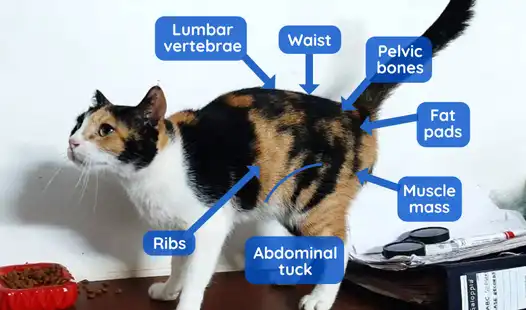
Life After FIP: Long-Term Care for Your Cat Post-GS-441524 Treatment
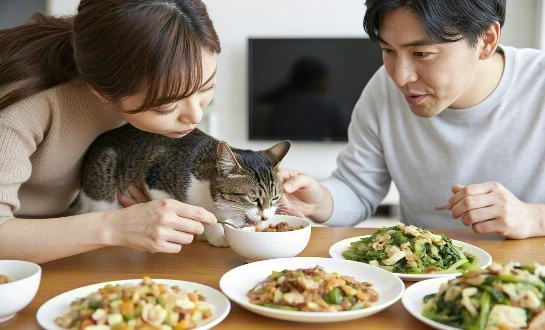
Cat Won't Eat During GS-441524 Treatment? 4 Ways to Stimulate Their Appetite


_副本_1758506507767.webp)
_副本_1758508468100.webp)
_副本_1758243222799.webp)
_副本_1758248142309.webp)
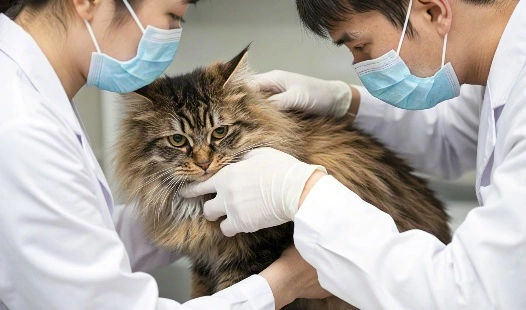
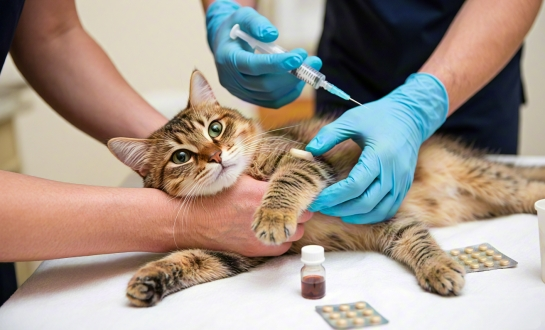
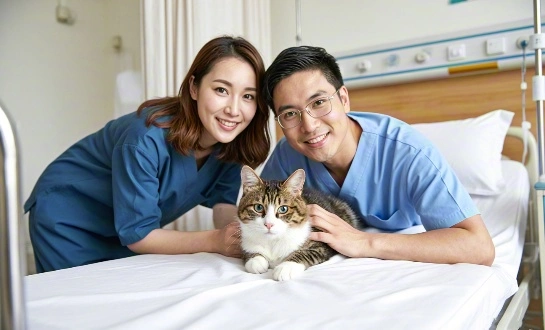
_副本_1758519070270.webp)
